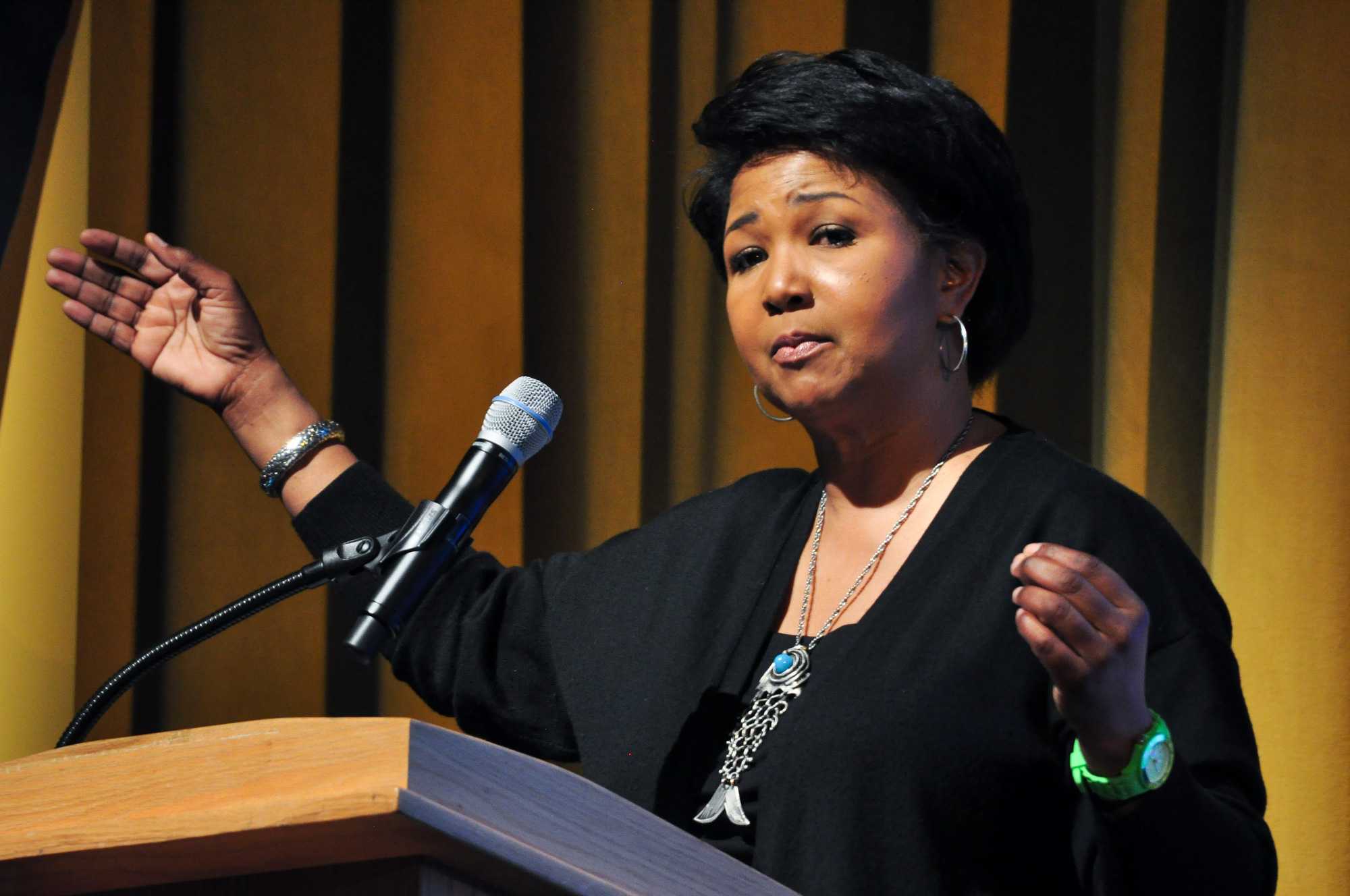Mae Jemison, America’s first African American female astronaut, spoke at Appalachian State on March 30.
Jemison was a NASA astronaut for six years, in which time she flew on the Space Shuttle Endeavor and was NASA’s first science mission specialist. Before becoming an astronaut, Jemison served as a Peace Corps medical officer for Sierra Leone and Liberia.
Her speech, titled “Creativity, Potential, and Daring,” was focused on how creativity and the arts are compatible with analytical fields such as math and science.
Jemison noted that although the sciences are often seen as being analytical while the arts are seen as being intuitive, neither is purely one or the other. For example, she said, a level of intuitiveness is required to form scientific theories, and a degree of analytical work is required to compose a musical piece or choreograph a dance.
“The arts and the sciences are not different sides to the same coin, but different manifestations of human creativity,” Jemison said. “The sciences are our attempt to explain the shared experience of the universe, and the arts are our attempt to provide universal understanding of personal experiences.”
Mckenzie Gillis, a senior English major who attended the event, said she greatly appreciated Jemison’s remarks on the importance of both arts and sciences.
“I have friends who are in the sciences, and we always have debates about which is more important,” Gillis said. “There’s this sense of competition about which is more correct and you can’t have both, but there’s definitely a lot of merit to acknowledging creativity while also acknowledging the importance of science.”
Jemison then talked about the importance of space exploration and her project called “100 Year Starship.”
“You probably don’t realize it, but space exploration has a huge impact on our day-to-day lives,” Jemison said. “GPS, weather forecasts and MRIs are all made possible through space exploration. The same algorithms that MRIs use to make those digital signals into pictures came from the same algorithms that were used to create images from the digital signals that came from remotely sensing the surface of Venus.”
“100 Year Starship” is a grant project headed by Jemison designed to foster the research to have the capabilities necessary to achieve interstellar travel within the next 100 years.
“We’re interested in pursuing the extraordinary tomorrow to create a better world today,” Jemison said. “It’s only by pushing ourselves that we get those creative juices that allow us to advance further and faster.”
The most important thing, Jemison said, is to break down barriers and think of ourselves as one people.
“I have a global ambition,” Jemison said. “We all need to see ourselves as Earthlings, because if we don’t see ourselves as the same, there isn’t very much hope for us.”
Story by Tommy Culkin, Senior News Reporter

